So you are reading this because you are probably looking to buy a new pressure cooker but haven't decided whether a stovetop or electric pressure cooker is best for you.
I'm here to help as best as I can.
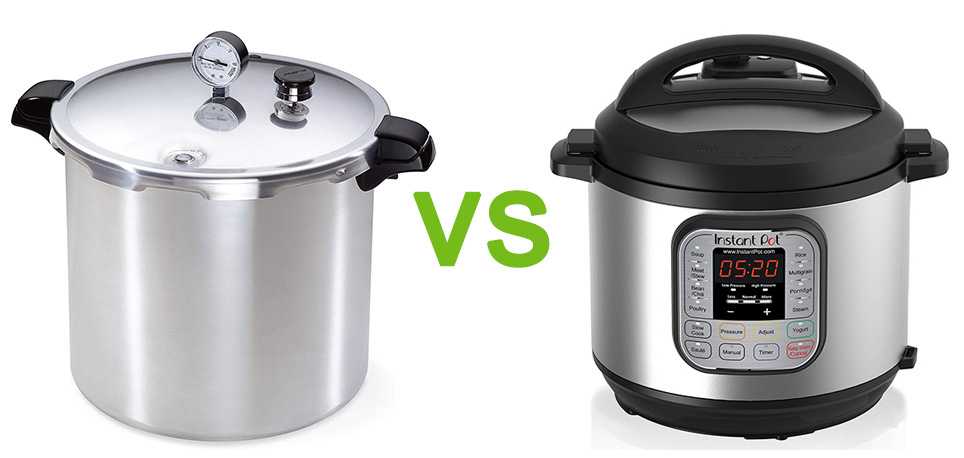
I can tell you right off the bat however that both stovetop and electric pressure cookers are both really helpful devices to have in the kitchen. They both make cooking a bit easier and give you a lot of flexibility in the kitchen.
In general electric pressure cookers will be a lot more hands off and they will give you an easy way to automate a lot of tasks in the kitchen.
The downside is that they are a bit slower than traditional stainless steel pressure cookers that sit directly on the burner. They take longer to come to pressure and they don't cook at a pressure that is as high as their stovetop counterparts.
There are of course size differences too. Stovetop models can range from very small to outright gigantic. Electric models though tend to fall within the range of 3-10 quarts with the most common sizes being between 5 and 8 quarts.
There is of course a lot more to say about this so please stick with me for a bit.
Table of Contents
Stovetop Pressure Cookers vs Electric Pressure Cookers: Which is Best for You?
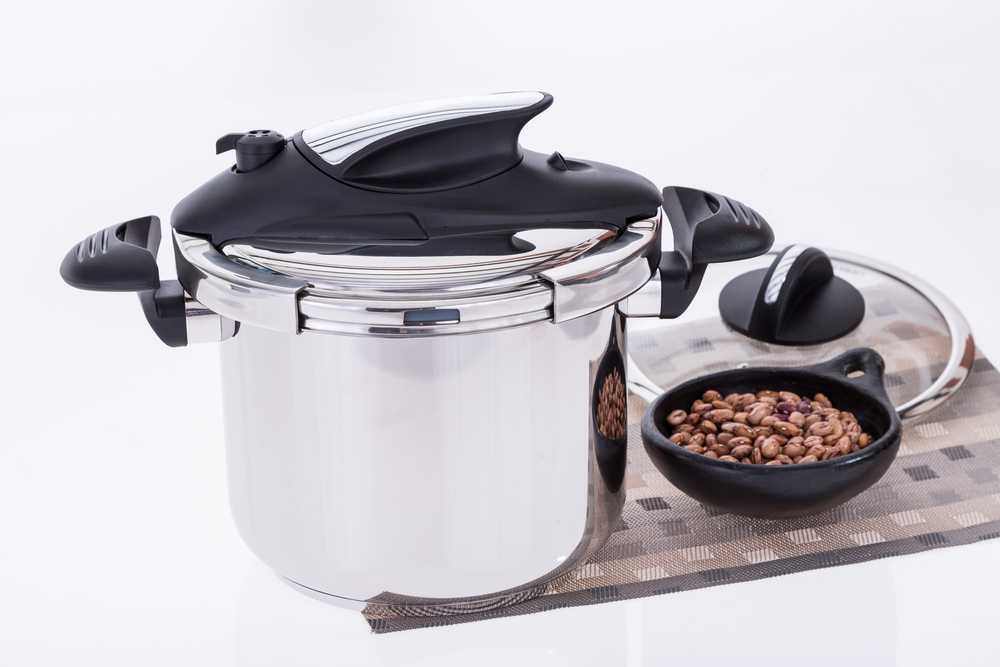
As every budding chef knows, shopping for a brand new appliance can quickly become an overwhelming prospect. There are a near-infinity of makes, models, and slight variations on fundamentally similar products. An extra feature here or a 10% saving there can make all the difference, or it can leave you confused and unsure about the best direction to take.
And shopping for a pressure cooker is no different. There are probably thousands on the market, some with subtle variations in shape, size, or color, and some with significantly different feature-sets, uses, and functionality.
The key is to imagine your shopping process as a flowchart of requirements. Start with the most basic principles of what you’re looking for, and work from there. And when it comes to pressure cookers, the first question you need to be asking yourself is: do I want an electric pressure cooker, or a stovetop pressure cooker?
Let's take a look at some of the primary distinctions between these two types of pressure cookers, in the hope that you can make the most informed decision possible.
Electric Pressure Cookers May be Nice but They May Not be Best for You
One’s first instinct may be to consider that an electric pressure cooker like Instant Pot as the more modern development in pressure cooking is by definition and in all cases the superior choice. Now, they are great, but this would be a drastic over-simplification!
In order to get a sense of which type of pressure cooker is right for you, it’s important not to discount one off the bat, and instead it’s well worth getting a sense of the various applications, strengths, and weaknesses of each type.
The Benefits of Buying a Stovetop Pressure Cookers
The first distinctive feature of a stovetop pressure cooker which you’re likely to notice is that it doesn’t look all that dissimilar from a regular pan-and-lid combo. And for good reason: that’s not all that far off from what it actually is!
In terms of functionality, there are a few major advantages to using a stovetop pressure cooker. Most notably, stovetops are able to achieve a higher operating pressure and maintain it for longer periods than electric pressure cookers.
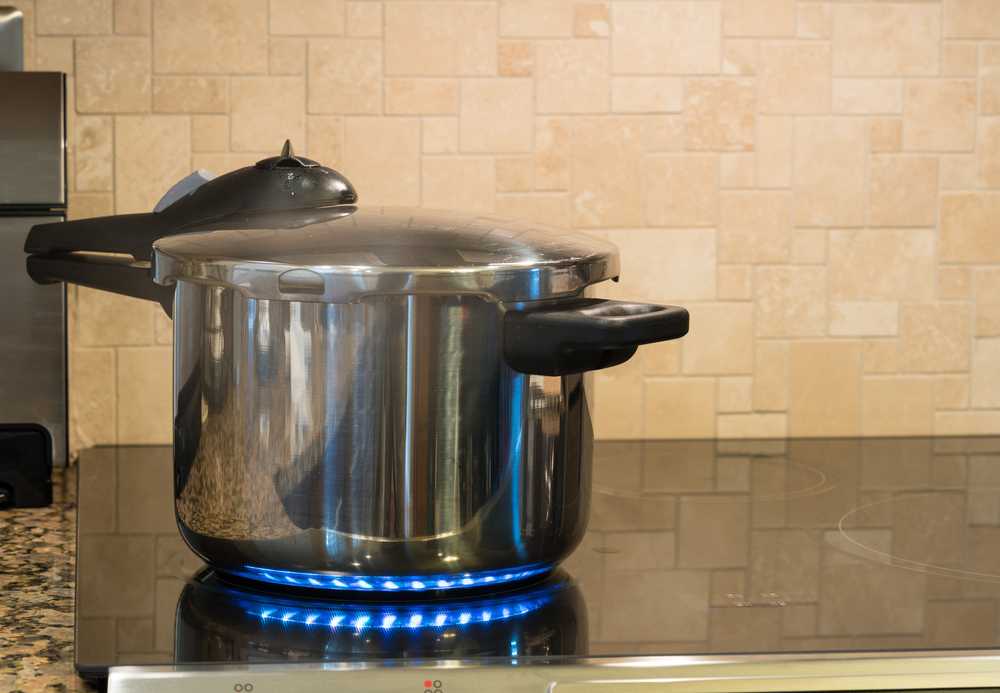
(As an aside, if you’d like to find out more about this distinction, check out our article, ‘Do Electric Pressure Cookers Reach 15 psi?’)
Depending on the strength of your stovetop heat source, as well as the amount of liquid with which you’re filling your stovetop pressure cooker, you should find that you’re able to bring the device to maximum pressure within just 11 minutes. This is compared to an average of about 14 minutes for an electric pressure cooker which, remember, won’t achieve quite the same operating pressure as its stovetop counterpart.
When it comes to cooling off the stovetop pressure cooker will cool down faster too. You can't do a cold water release on an electric pressure cooker but that will be possible with a stovetop model.
If time is of the essence, then, a stovetop pressure cooker might seem like the obvious choice. But the time that it takes to get going is really only one element of convenience, and perhaps the only element of convenience which a stovetop pressure cooker has over its more advanced cousin, the electric pressure cooker.
Here are a few more points to keep in mind about stovetop pressure cookers:
- Versatility. While all pressure cookers are versatile, you may find that a stovetop pressure cooker is more versatile than an electric for the simple reason that it most models can double as a normal pan if required. Simply leave off the pressure cooking lid, and use it as normal. This can be handy if you have run out of other kitchenware, or even in preparing ingredients that you will then want to add to a pressure-cooked meal.
- Storable. Unlike electric pressure cookers which are typically on the bulkier side given that they incorporate a heating element among other technological components, you can generally store a stovetop pressure cooker as you would any other pot or pan. This also saves on counter-space, as you don’t need to devote a permanent placement in the same way that you might have to with an electric pressure cooker.
The Benefits of Electric Pressure Cookers
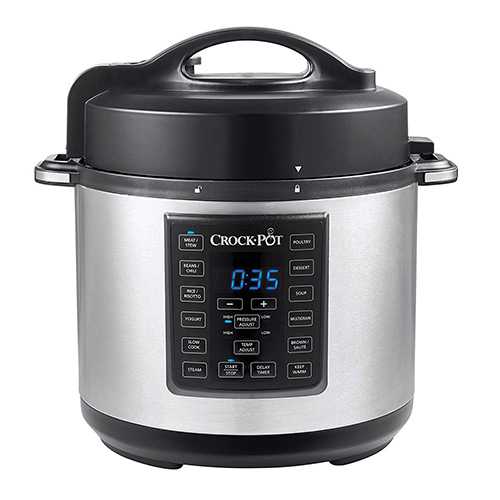
At this point, you may be thinking ‘why would I ever want to get an electric pressure cooker?’ But wait! Not so fast. Although there are definite trade-offs to direct efficiency in terms of the operating pressure, time to reach it, and some of your storage options, an electric pressure cooker can offer a totally different type of convenience: peace of mind.
Firstly, it’s worth pointing out that electric pressure cookers from all reputable manufacturers are jam-packed with a myriad of features which make them incredibly safe to use. From sensors which detect whether or not the lid is firmly and completely sealed before allowing the heat to turn on, to a lid-locking mechanism that prevents opening at any time that could be potentially dangerous and result in a face-full of scalding hot steam: these are high-tech pieces of kit designed for safe use in a family home.
Versatility, though generally lesser than a stovetop pressure cooker, is also something which electric pressure cookers are beginning to embrace. Not only do you have the innate versatility provided by the pressure cooking method, but many models are now starting to ship with modes such as ‘sauté’, slow cook, steam, among others.
Within a few years, it may be that your electric pressure cooker can take care of most aspects of your kitchen experience at a moment’s notice!
Similarly, some electric pressure cookers are also starting to include slow-cooking modes, which can certainly come in handy!
However, the most important feature to consider when working out what differentiates a stovetop pressure cooker from an electric pressure cooker can be found in the sophisticated electronics which comprise the machine.
As we mentioned earlier, although you lose some of the convenience afforded by a slightly-faster heating and cooking time, with an electric pressure cooker you also gain a great deal:
- Integrated Cooking Timer. You can tell the electric pressure cooker how long a recipe requires cooking for, add your ingredients, and walk away. The timer will countdown, ensuring that your food is cooked to perfection every single time. But don't be afraid. It's really easy to convert stovetop recipes to electric pressure cooker.
- Smart Scheduling. As if the above wasn’t already convenient enough, many modern electric pressure cookers will allow you to go one step further than telling the device how long to cook for: you can also tell them when you’d like the cooking to start! For a meal that doesn’t contain easily-spoiled foods like meat and dairy, you can generally set a delayed start of up to 12-hours in many cases so that you can easily coordinate the automatic cooking (and subsequent eating!) around the rest of your day.
So Which Is Best?
Ultimately, this isn’t a question I can answer for you. I own both and a couple sizes of each!
There are great advantages and minor disadvantages to each type of pressure cooker, and only you can decide which best fits in with the kind of cooking you like to do.
If you value the easy versatility of being able to swap between using the pressure cooker for its intended purpose or as a regular pan, then a stovetop is the right choice for you. If, on the other hand, you value the more high-tech conveniences like scheduling, automatic cooking times, and great safety features, then an electric pressure cooker is the only option!
Make sure to take a look at the following pages to help compare some of the best products for sale today.
Best Electric Pressure Cookers of 2023
Best Stovetop Pressure Cookers of 2023
Whatever you choose, remember that you’re already doing well! Pressure cooking is a fast, energy-efficient, and nutrition-preserving method of cooking, and so however you go about it, you’re already doing just fine!
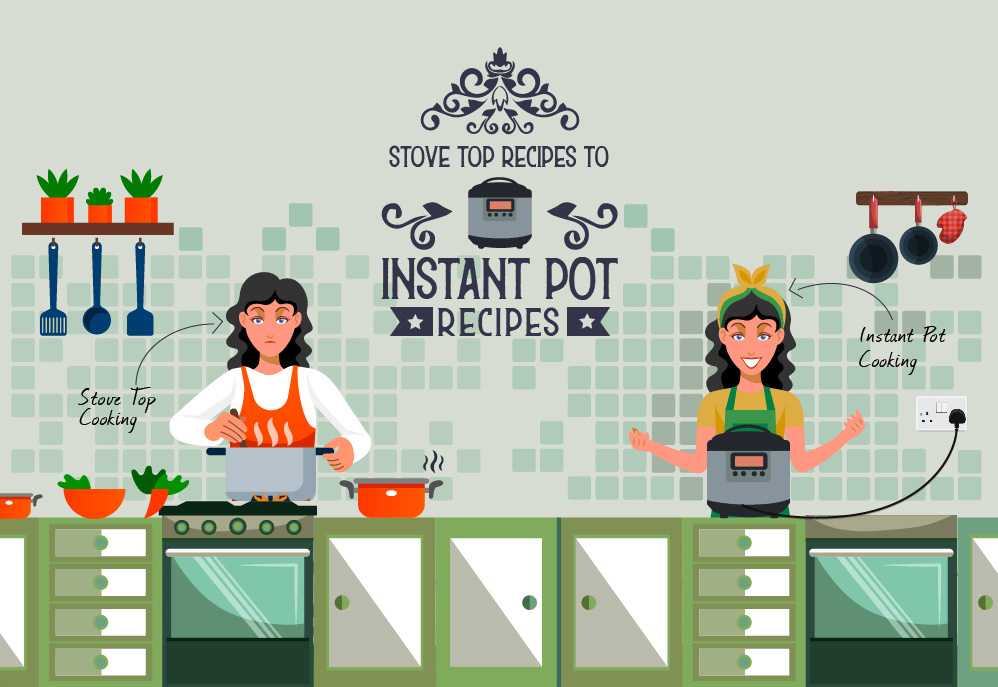
Hi Corrie, I bought a Kuhn Rikon 12 litre stovetop, and I'm very pleased with it. I've turned into a pressure cooker zealot! Your comments are spot on. I bought a big stainless stove top because it's so easy to clean, and because I can use it as "just a pot". But mainly I fry up or sweat some of the ingredients individually in the one pot, then combine and pressure cook the lot. The one disadvantage I find is that you have to watch the heat setting during cooking to keep the pressure in the right range. I'd recommend buying a big stovetop because you can always cook a smaller quantity if you want. But I'm lazy, so like to cook a big pot of casserole, curry or whatever and freeze the leftovers so if I get home late I can quickly heat up a meal. Whichever type you choose I think pressure cookers are great!
I enjoyed this article. Thank you for doing the comparison.
Readers please understand you can not do pressure canning in electric pressure cookers. There are some designed for it but the University of Utah Extension Office has done research on electric canners with disappointing results. Enjoy your electric pressure cookers. I do.